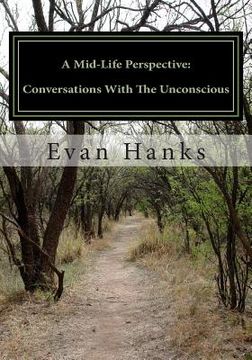A Mid-Life Perspective: Conversations With The Unconscious: A Subjective Study of Science, Religion, and Consciousness (en Inglés)
Reseña del libro "A Mid-Life Perspective: Conversations With The Unconscious: A Subjective Study of Science, Religion, and Consciousness (en Inglés)"
This is a book of poetry; but, it is first and foremost a psychological work. As such, it is a spiritual one, for the aims of psychology are (or should be) inseparable from those of religion and philosophy; namely, to define human consciousness. Based on the psychology of C. G. Jung and inspired by Goethe's Faust, this book is a chronology, in poetic language, of the change in perspective prompted by the mid-life transition. Jung wrote that the unconscious has been engaged in this process over hundreds of thousands of years, and for most, it guides them through it with relatively little friction. But for those who are deeply moved by it, it is a spiritual and psychological journey which leads into the individuation process. This process involves coming to terms with the unconscious, and the change in thinking required for it is founded on the conflict of opposites. It has many parallels with the cultural shift in values we are experiencing today. The old religious view of good and evil is giving way to a rational, scientific one which only further splits our notions of reality. Science has dissolved the metaphysical images of the past and conceived a new objectivity. So fascinated by it is this new-found vantage point, it assumes that it can be applied to the psyche as it is to the physical world. It cannot. The psychic world of images is only indirectly based on concrete reality. Jung has demonstrated that what we identify with as consciousness is only one partial complex of associations in an animal psyche forged over eons of evolution. To add to this problem, Jung saw the intellect as only one among a set of balancing functions which orient perception. As an information processor, it must be supplemented by its opposite, feeling, to give it meaning and value in the context of a greater whole. Along with the subjective nature of consciousness, the alternating development of opposing functions only compounds the problem of observing ourselves with any verifiable objectivity. Consciousness changes over time, and we have no fixed reference point by which to observe the psyche as science has in the material world. Because the effects of the unconscious can only be inferred, Jung compared our dual perceptions of the inner and outer worlds historically, over time. He found that consciousness is relative to changes in focus which reflect swings in our development. This book is a story and an example of how such changes may be perceived when a dialogue, an exchange of ideas, is entered into with the symbolic figures of the unconscious. This dialogue is presented in the form of an exchange between four figures. Three represent the unconscious standpoint; the fourth, the reactions of consciousness to the spiritual/philosophical demands which initiate the individuation process. It began with eight illustrations portending the journey in pictorial form, and these are dispersed throughout the text according to the development of the ideas with which they are associated. The conversations describe the gradual elaboration of them through focus and concentration on dream images. Poetry seemed best suited to express the emotional conflicts I experienced and so began a sixteen-year process of recording my reflections on the "voices" which speak though the unconscious. As self-reflecting animals, we are many things. Our natures will always defy our own definitions, for we are not products of ego-ideals. We are natural beings shaped by inborn functions with which earthly reality has outfitted us. To come to terms with our own wholeness; to resolve the split between man and nature, conscious and unconscious, science and religion, we will be compelled to listen to nature more closely -- beyond the loud din of those who cannot hear her voice. It is the soft, almost inaudible whisper of the human soul that wants to be heard: the search for subjective truth in a world of illusion.

